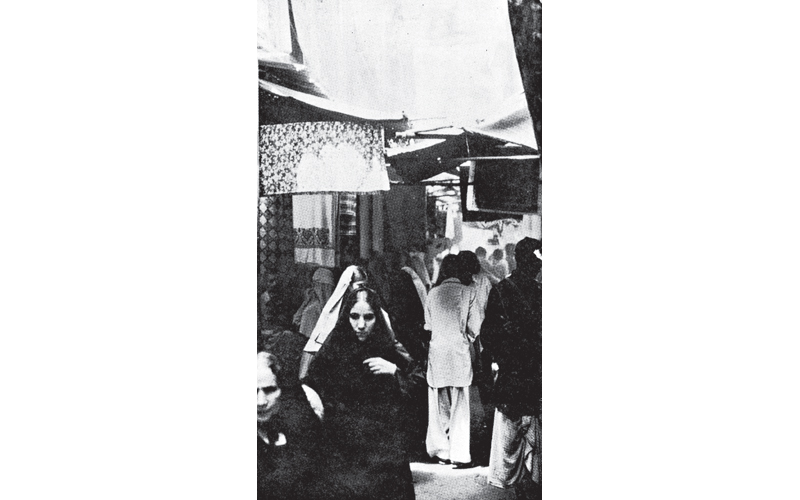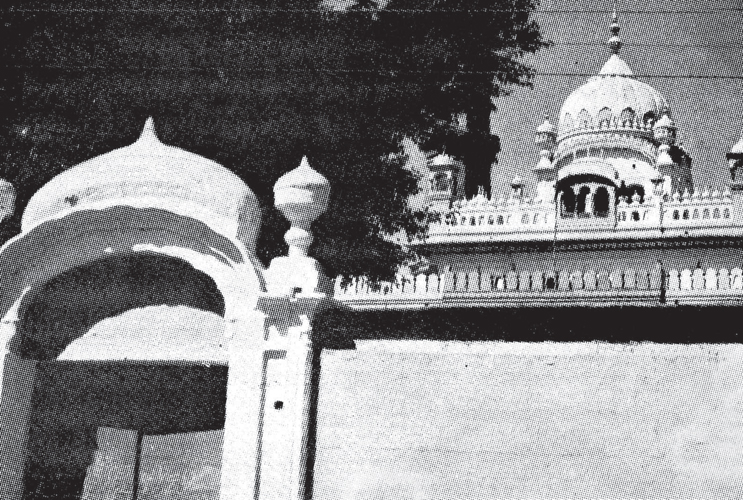Cities
Urban Designers and Historic Cities | Samuel Noe
The Decline of Traditional Sensibilities
LA 48 |
|
(Orginally published in 'DESIGN- Magazine of Art & Ideas', April- June 1980)
Our perceptions of traditional cities serve as a basis for our approach to preserve them as urban designers. We need to view ourselves as protectors and sympathetic participants in a complex decision making process with many invested stakeholders. We must be responsible for and work towards the enhancement of the existing environmental quality in the city.
|
|
 |
|
As urban designers we are more and more concerned about the environment of the traditional city. This growing interest reflects recent architectural fascination with vernacular environments and with preservation of historic structures. But it also expresses a social concern among professionals active in the Third world. For in this environment a majority of the urban population still lives under social and economic conditions in many ways similar to those of much earlier times. Therefore, traditional environments still have a strong relevance, giving validity to our concerns. Yet when our interest be¬comes more than passive, we are faced with significant questions growing out of our personal values and accustomed ways of working. These questions concern our level of understanding of the traditional community, our will¬ingness to accept values and concerns different from our own, our concepts of professionalism, our relationships to clients and employers (and in turn their relationships to the community), and finally the nature of our profes¬sional education.
The first question arises out of our characteristic perceptions of a tradi¬tional environment such as the old walled city of Lahore, which provides the illustrations for this article. We are attracted, of course, to the great monuments of Mughal and Sikh rul¬ers – broadly accepted architectural masterpieces. Proceeding into the bazaars, we respond positively to their “human scale” and pedestrian character, their vitality, colour, and the strong interplay of light and shade; to the craftsmanship evident in many articles displayed for sale : saris, gold embroidery and brocades, jewel¬lery, copper vessels; to the smells of the spice bazaars. In the residential mohallahs opening off the bazaars, we are struck by the comparative quietude and privacy, and by the fine architectural details of older houses. These reactions are primarily sensual and aesthetic, reflecting our profes¬sional training. The writings of Cullen, Bacon, Rudofsky and Mumford come to mind. Our negative responses to multimodal traffic density and confu¬sion, to the many dilapidated buildings and katcha hutments, to lack of space, to commercial encroachments which mask fine old facades, and to frequent¬ly filthy streets-these are also aesthetic, but probably born as much out of our own different personal circumstances as our heightened visual sensitivity. Few urban designer make their homes in traditional areas of the city.
|
|


|
|

|
|
|
|
| CURRENT ISSUE: LA-61 |
|
|
|
|
environment, ecology and biodiversity |
RESCUING THE URBAN POLLINATORS
MADHURA KHADE
WETLANDS AT WORK
UNDERSTANDING WETLANDS
With inputs from Dr. C. R. Babu
CONSTRUCTED WETLAND AT RAJOKRI, NEW DELHI
[Delhi Jal Board]
Ankit Srivastava
CONSTRUCTED WETLAND AT NEELA HAUZ, NEW DELHI
Landscape and Environment Planning Department,
Delhi Development Authority
CONSTRUCTED WETLAND AT HAUZ KHAS LAKE, NEW DELHI
Tarun Nanda, Evolve Engineering
RESTORATION AND REJUVENATION OF RIVER YAMUNA FLOODPLAINS, NEW DELHI
Landscape and Environment Planning Department,
Delhi Development Authority
REIMAGINING THE CITY
YAMUNA RIVER PROJECT:NEW DELHI URBAN ECOLOGY
[Authors Inaki Alday and Pankaj Vir Gupta]
Review by Geeta Wahi Dua
REJUVENATION AND RESTORATION OF URBAN PONDS, GURUGRAM
Future Institute
SPURRING ECONOMIC REVIVAL THROUGH ECOLOGICAL RESTORATION,
NANHU, CHINA
Uma Sekar
heritage, urban design, landscape architecture |
FROM MY HOUSE TO YOUR HOUSE
In conversation with Miki Desai
CITY MAPS: MAPPING NATURE AND ENVIRONMENT
Review by Rabindra J. Vasavada
A SENSE OF SPACE
Anuraag Chowfla
IN CONVERSATION WITH RANJIT SABIKHI
DEMOCRACY, PARTICIPATION AND CONSULTATION
In conversation with Bimal Patel
city and culture |
OUR CITIES CAN FIGHT COVID-19 PROACTIVELY
Mriganka Saxena and Puneet Khanna
LOCALIZING FUTURES
Geeta Wahi Dua
BOURGEOIS ENVIRONMENTALISM AND THE VULNERABILITY OF THE POOR
UNCIVIL CITY: ECOLOGY, EQUITY AND THE COMMONS IN DELHI [Author: Amita Baviskar]
Review by Nikhil Dhar
STREETSCAPES IN PUNE
CREATING A HEALTHY AND WALKABLE NEIGHBORHOOD: AUNDH NEIGHBORHOOD UPGRADATION | PUNE
Prasanna Desai Architects
ABOUT RETAIL, TREES AND YOUNG VIBES:
JANGLI MAHARAJ ROAD | PUNE
Oasis Designs Inc.
EMERGENCE OF THE EPHEMERAL
Bijoy Ramachandran
seeing the unseen |
ART FOR ALL
St+Art India Foundation
|
|